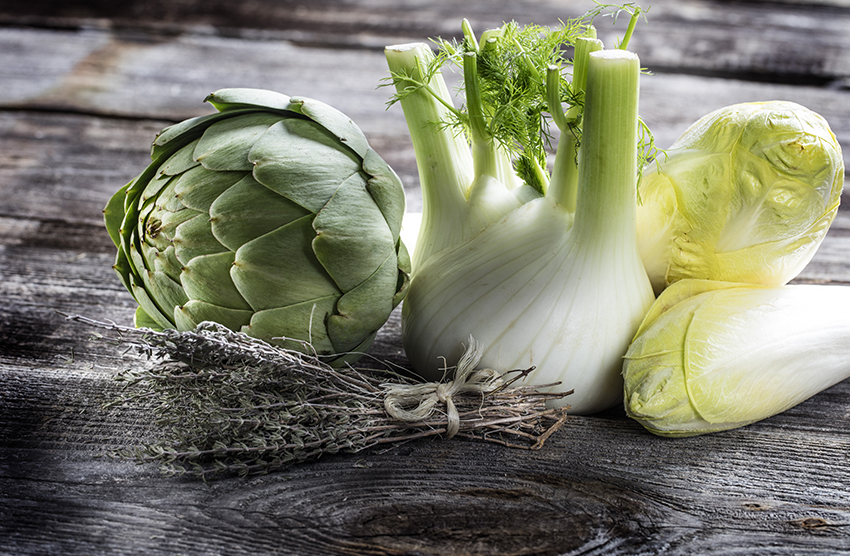Here’s the third topic of our article series, Food as Medicine. Let’s see how you can help your body’s natural mechanisms ward off and eliminate toxins.
Your liver is an organ that’s a key player in your health and is your body’s “metabolic factory”. It’s also your biggest organ, in which most chemical reactions take place.

Besides playing a role in your digestion by producing bile (up to 1 liter per day!), producing several molecules (including cholesterol) and filtering out toxins to keep your blood clean, it’s also in charge of deactivating something called xenobiotics (literally the molecules that are foreign to life and “contaminate” your body so to speak, such as caffeine, nicotine, alcohol, medication, pollutants, pesticides and estrogen-progesterone… the list goes on and on.
To get rid of these molecules, first your liver will oxidize them, then solubilize them in order to carry them in the blood and finally eliminate them through your kidneys. Your intestines are also closely related to the liver circuit (also known as enterohepatic circulation). In fact, when there are too many contaminants or toxins in your body, your intestines can no longer effectively play their role as a barrier organ, which means that your liver has to work harder. And conversely, pushing your liver’s ability to detox to its limit will have serious consequences on intestinal function. It’s all interconnected.
There are many general symptoms that show that your liver has stopped detoxing effectively, either because there are too many toxins or because your liver doesn’t have the necessary nutrients: fatigue (especially in the morning), sleepiness after eating, migraines, nausea, heightened sense of smell, digestive problems, bad breath or a coated tongue.

After your body is detoxed and cleansed, find out in our next article how to optimize your mental wellness and build a stronger mindset! Stay tuned!
Join the 7 million users already registered on FizzUp
Join us